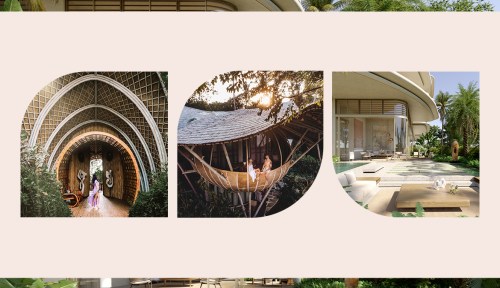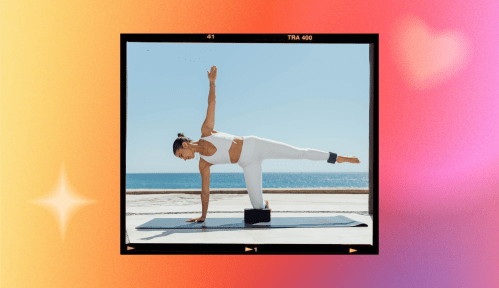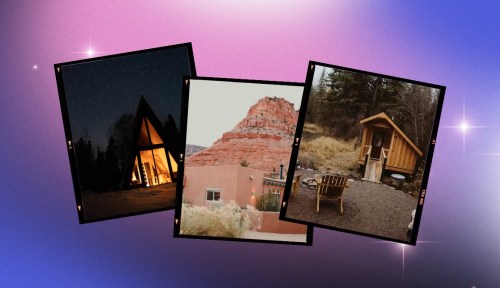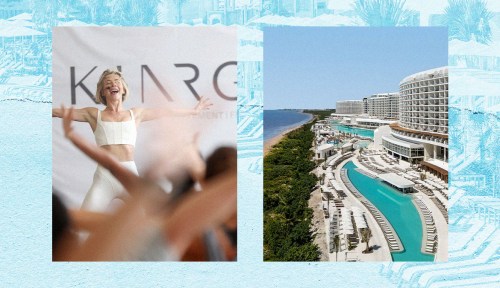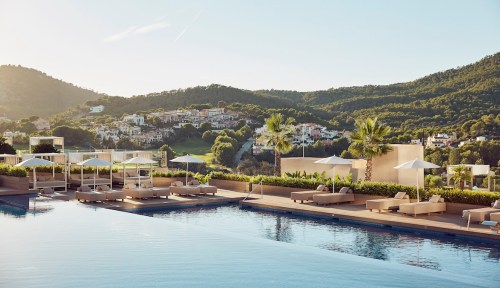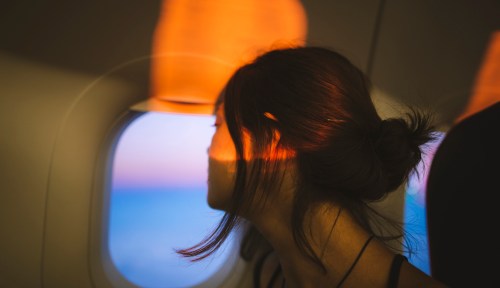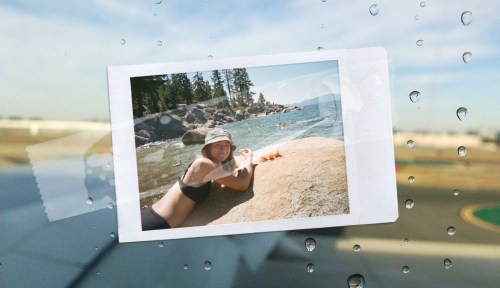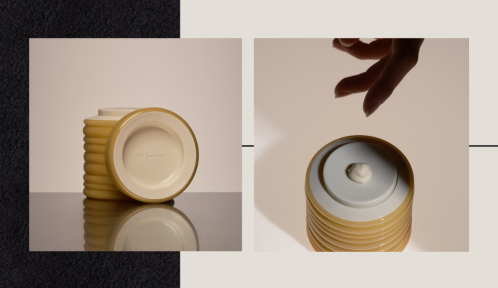Our editors independently select these products. Making a purchase through our links may earn Well+Good a commission
Have you ever entered a colorful, flashy nightclub and felt a giddy excitement propel you to the dance floor? Or experienced a sense of calm envelop you upon stepping into a quiet, cavernous cathedral? Well, according to environmental psychology—which is the science of how the spaces we inhabit impact us—all of that makes sense. And it also helps explain why new hotels and resorts are using curves in their design to lure clientele.
Experts in This Article
author and founder of the The Aesthetics of Joy
environmental psychologist
When we talk about design aesthetics in both buildings and objects, what we’re really doing is breaking down the way shapes, patterns, and textures provide our subconscious brain with information about what to approach and what to avoid. Or, help us decide whether a space or item will benefit us or harm us. With this in mind, it makes sense that our brains would automatically prefer round and plush over angular and pointy, making curvilinear design a natural match for vibes of relaxation and comfort. Think about it: Which type of surface or object would you rather bump into or step on when navigating unknown territory?
When writing her book Joyful: The Surprising Power of Ordinary Things to Create Extraordinary Happiness, designer Ingrid Fetell Lee dug into research supporting the human preference for roundness and curves: “When neuroscientists place people into fMRI machines and show them pictures of angular objects, a part of the brain called the amygdala, associated in part with fear and anxiety, lights up,” Fetell Lee says. “But when the same people look at curves, that part of the brain stays quiet. Sharp angles in a space might subtly increase our baseline level of anxiety, while curves set us at ease.”
Now, a number of hotels and resorts are using that intel and consulting environmental psychologists to create spaces that promote feelings of relaxation and novelty. The idea is that by doing so, they may encourage guests to linger longer.
Environmental and design psychologist Sally Augustin, PhD, is the founder of Design with Science and author of Designology: How to Find Your PlaceType and Align Your Life With Design. She helps builders create hospitals that promote healing, offices that enhance efficiency, and retreats that foster feelings of well-being and positive mental states. And when the goal of a resort is to put its guests at ease and help them release tension, Dr. Augustin recommends her clients incorporate shapes and patterns that mimic organic, soft, round forms found in nature. For two examples, take the graceful unfurling of a growing flower or the circular whorls found in natural grain wood.
“Going back to prehistory, places that had a preponderance of plant life around would be considered safe and relaxing, because you wouldn’t need to worry about where your next meal will come from or how to provide shelter from a storm,” Dr. Augustin says. And when you’re safe and relaxed, your mind is freed up to explore more freely.
That helps explain why curves as a design element—playing on that comfort in natural shapes—connect to improved creativity. “When early humans would inhabit a place where their basic needs for food and safety were tended to, it allowed their minds to ponder other questions, problem-solve and innovate,” Dr. Augustin says.
Why curvilinear design is especially appealing in hotels
“Our man-made environments are highly rectilinear,” says Fetell Lee. “Houses are boxes, subdivided into smaller boxes. Our windows are rectangles that shape the world with four corners. Our TVs and devices are all roughly rectangular, too. Yet these kinds of angles are unusual in nature. Taking time to explore curvilinear spaces—whether natural or man-made—disrupts the monotony of life inside the box, so to speak; offers novel sensations; and may feel both soothing and sensorially inspiring.”
It’s true that we often travel to relax, but we also seek out experiences that feel fun and out-of-the-ordinary, lest we get bored simply sunning ourselves by the pool. Turns out, curves can help meet this need, too.
“Encountering round buildings and rooms can feel like entering another world, a world we might associate with the imagination of our childhood.” —Sally Augustin, PhD, environmental psychologist
Both Dr. Augustin and Fetell Lee point out the natural association between roundness and exploratory childlike play. “Many of the most essential playful objects are circular or spherical: balls, Hula-Hoops, spinning tops, marbles, balloons. This is no accident,” Fetell Lee writes in a blog post.
Similarly, Dr. Augustin points to the squiggly lines of a Dr. Seuss book illustration. “Because curvilinear design is so outside the standard in Western design and architecture, encountering round buildings and rooms can feel like entering another world, a world we might associate with the imagination of our childhood,” she says. And that association can help us access the transportive effects of childlike joy—a welcome restorative and relaxing vibe for traveling.
3 new hotels using curvilinear design
Ready to check into a hotel designed to help you relax through the simple power of curvy, round shapes? Check out examples of new stays tapping into the power of curvilinear design.
1. Ulaman Eco-Resort, Bali, Indonesia
The newly-opened Ulaman Eco-Resort’s use of flexible bamboo as its primary building material allows each suite and resort building to arc and flow serenely through the jungle, like the waves of its neighboring Indian ocean.
2. Svart Hotel, Norway
Six Senses’s new hotel, set to open in 2024, will be the world’s first energy-positive off-grid destination. Its construction takes the shape of a giant circle to afford 360-degree views of the pristine polar region.
3. Aman Beverly Hills, California
Renderings for Aman Hotel & Residences in Beverly Hills show curved facades and rounded corners that mix well with the abundant living walls that help it merge into the surrounding landscape. Its nature-inspired design, created specifically to foster health and well-being, is appropriately congruent with the nearby botanical gardens.
Sign Up for Our Daily Newsletter
Get all the latest in wellness, trends, food, fitness, beauty, and more delivered right to your inbox.
Got it, you've been added to our email list.
